Genevieve Ryan – Dancer & Co-founder, Galway Dance Project
Genevieve Ryan is a dancer from New York, who has found her home in Galway. She is co-founder of the Galway Dance Project, and co-producer of Off the Beaten Path. She is also a Sivananda yoga teacher.
More from...
Tell us about the path that took you to where you are today?
I was born in New York City. My mom and I would go to a lot of art galleries, we'd go to a lot of shows because her friends were artists, so I was always exposed to that side of life. My dad is a yoga teacher in New York and he's done that since I was about three, so on the weekends we lived at a yoga ranch up in the mountains and during the week, we lived in the city. When I was 12, I moved to Santa Fe with my mom after my parents split up, so I'd be in Santa Fe for the school year and I'd spend summers in New York.
After high school, I moved to Los Angeles and I was there for about eight years studying dance and acting. I wasn’t sure exactly what I wanted to do but I was really interested in visual arts, theatre and film so I kept my finger in everything. In LA, you have the availability of things like in New York, but it's not as fast paced and it's not as intense. I was living in Venice Beach - no better place to try everything out and see what your fancy is. Then I just got tired of being there and so I came here.
Where did your interest in dance come from?
My grandparents were dancers in a Jazz trio - my grandmother, my grandfather and another guy. They used to dance in Jazz clubs in the 40s and 50s - Fred Astaire, Ginger Rogers, that sort of stuff. When I was little my grandmother and I would go to the thrift stores and buy these little ball gowns. Then we’d move all the furniture in the house and my grandfather and I would dance around the living room. So dance has always been a really big part of me. It's always been a comfort thing, because I remember just dancing with him for hours. I'm sure he enjoyed it, but I'm sure he placated me too because I just wanted to dance all the time.
What drew you here?
After high school, I had planned to travel around Europe - but I had visited Galway and ended up spending six months here and six months in Dublin - that was my travelling Europe! That's when I moved to Los Angeles. So after Los Angeles I thought, oh, I'll go back to Ireland and just work in a bar, do something that will just clear my head. Once I got here in 2006, a friend of mine had a créche, so I started teaching yoga and dance to the little kids and then after that, another job opportunity came up to teach dance and gradually, I started back to dance full-time. Everything just kind of fell into place.
What's a typical day?
I get up, have some coffee, check emails, things like that. After running errands, around 2pm, I go into the studio in Salthill and start creating dances for the classes I have coming up, or working on personal dances, personal choreographies. I'm not the best with words, I’m very comfortable moving.
Two friends, musician Eamon Brett and another dancer, Kasia Voetter and I decided to come together and create ‘Off The Beaten Path’, which involves live music that Eamon’s written and performs and Kasia and I create the dances.
I dream with dances; there are dances that happen in my dreams, so I wake up and think, ‘I need to do this’, so I don't forget it.
I mostly teach teenagers from age 12 to 19, but out in towns like Kinvara, I teach from the age of 4 to 12. I teach hip hop, I teach musical theatre, I teach a lot of contemporary, I teach a lot of lyrical, I teach jazz and modern.
Describe yourself?
Focused, driven, compassionate and strangely calm.
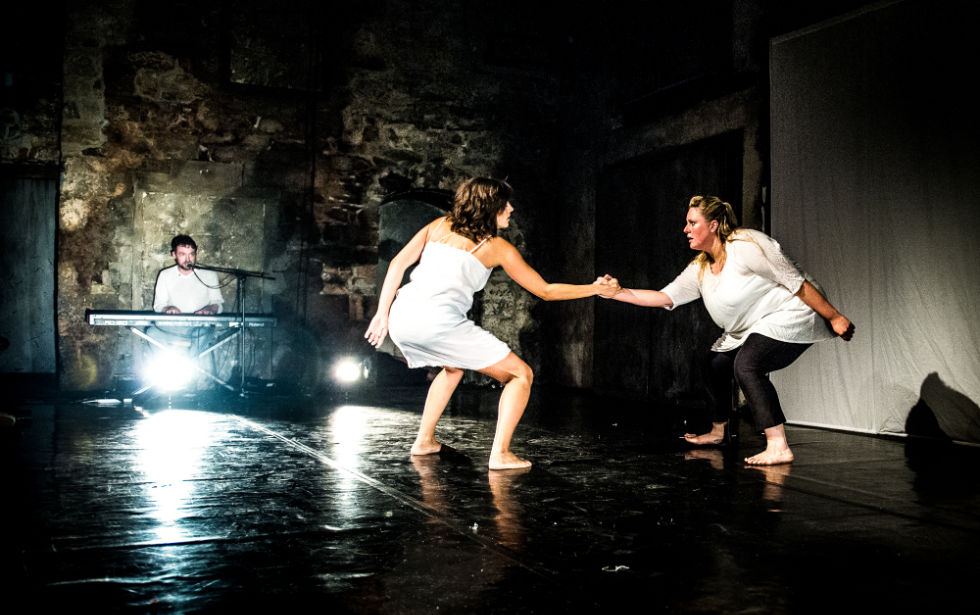
So tell us a little bit more about ‘Off The Beaten Path’?
We rehearse at my space. We've done small performances for Galway Culture Night for the Galway Dance Project and then we've also done a performance in the Taibhdhearc that we put on ourselves and then we've done performance at Dance House in Dublin as a work in progress. Our performances are mostly work in progress because we've only been together for 2 years. We each have a lot of other stuff going on, so we get to meet up very rarely. But it's always fun.
How did you come to co-found the Galway Dance Project?
When I first got back and started teaching dance classes, people started asking me about dance classes for adults in town. There's a lot of dance in Galway - from the Latin styles to musical theatre to swing, but there was very little information about what was going on. So four dancers - myself, Tanya McCrory, who was the dancer in residence at the time, Bernie Divilly, who is a movement therapist, and Rachel Parry decided to come together and create something that could be a dance hub of information, and also to provide professional dance training and support for dancers. That was a big thing because there's a lot of dancers here, but no professional level training. We all came from very different dance backgrounds but agreed that this needed to happen so we did that and it worked.
How's that going?
Really well. We do a lot of professional level workshops with guest teachers from all over Ireland and all over the world. We set up dance platforms so that dancers that are here can showcase work and we're really trying to fight for a space because that's the biggest issue for all dancers and dance teachers - just a space that is solely for dance. A lot of our workshops are in school halls or the rowing club.
So how would you rate the dance scene in Galway?
There's a lot of people that do it for social activity, like community dance - so that’s the swing groups, the latin groups - something to do during the week or at weekends. With that, I don't think people are aware of just how much is going on. There are a huge number of dance schools in town now, and because of all the TV programmes on dance, whether people like them or not, dance has finally become acceptable to talk about, to say, 'I like to dance’, whereas before, some people had this fear of actually admitting that they liked dance, or that they could dance. That’s due in part to the fact that it’s always been an alienated art form compared to the visual arts or film. It's very personal - there’s no medium, you're working with the self. But now, it’s more acceptable in the home for a little boy to say he wants to dance. I have a lot of boys I teach who come for hip hop because it's cool; it’s very physical, so you run them ragged but they get to a certain level and they go, oh I'd like to be a bit better, so then you can introduce Jazz to them and other forms that they kind of get hooked on without thinking that Jazz or ballet is this elitist thing. I think a lot of people have that view of dance, that it's elitist, that they don’t get it, but it's much more simple than that.
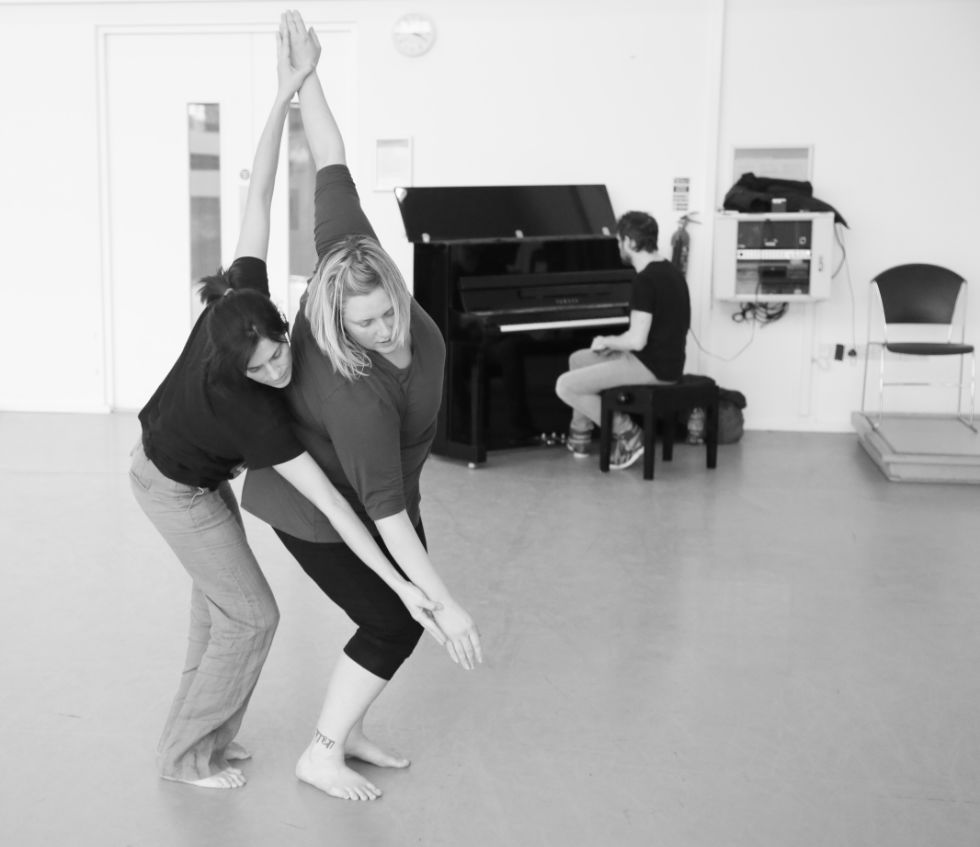
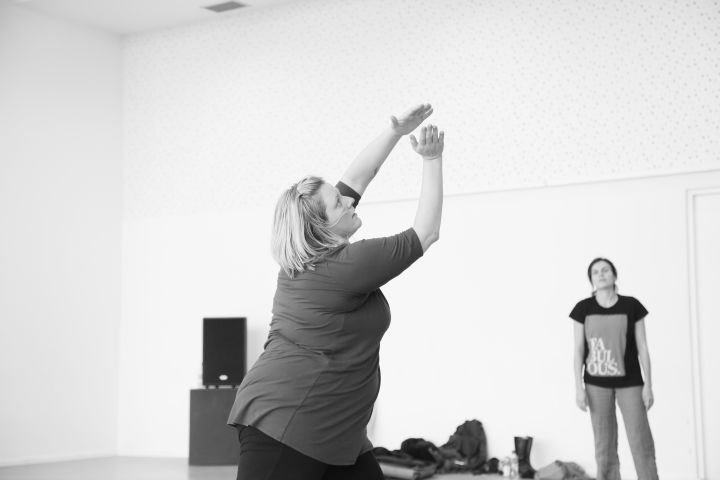
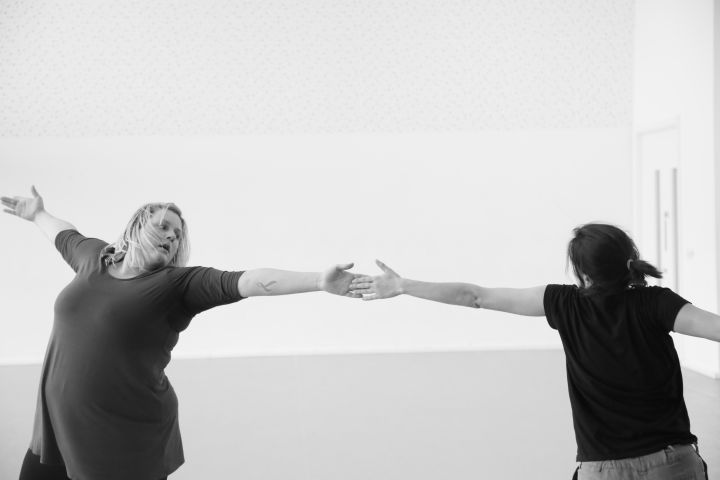
What do you love about dance?
I love the physicality of it and I love being able to express myself through movement. I also really love connecting with people. Teaching for me is a big thing because it's about connecting with someone to get them to start moving and be comfortable in their own skin, which I think has a knock-on effect in everything else. Once they're comfortable in their own skin and confident in themselves, then there's nothing there stopping them - they have the confidence to try new things, to step out of the norm. Whereas if you have self doubt or you're lacking in confidence, it's always going to be tougher to break the mould, to step out of what's normal and what's acceptable.
What do you think dance does for the kids you teach?
It gives them an outlet of expression that they don't realise is self-expression, I think they think it’s just a physical activity. Even playing a game like musical bumps or musical statues, it's their own personal style that comes out. I really love watching kids play dance games because it's their own voice and personality that emerges and they get lost in it and don’t realise.
How do you get adults over that self conscious thing that many people have with dancing, with letting go?
With adults, it's more about getting them to find the rhythm that they enjoy, whether it's hip hop, jazz or contemporary, or even lyrical. And I think it depends what's driving them. Some people come to dance classes because they love rhythm, but feel like they can't dance. In that instance, you'd just work on dances that are focused on rhythm and following music. Some people feel that they want to dance because they can just feel it, there are these emotions they want to get out, which for me, I think is much better for lyrical or contemporary where it doesn't have to be a set structure. Contemporary doesn't have a set structure of what it's supposed to be, where ballet might, or even jazz. It's to the rhythm, it might be off rhythm, but it's still its own rhythm that you're following and certain moves, angles. With lyrical, you're just following the words of the song that you like and it makes you feel good.
Do you think it’s in everyone - rhythm, an ability to dance?
I do, I think it's in all of us. I think we're born with it, even with the rhythm of the heart beat or the rhythm of our breath. I think we're all really affected by those things. You know, if you're nervous, you can see someone that's nervous in their quick little breaths that they can't quite catch or if you're trying to fall asleep and you're just focusing on your heart beat.
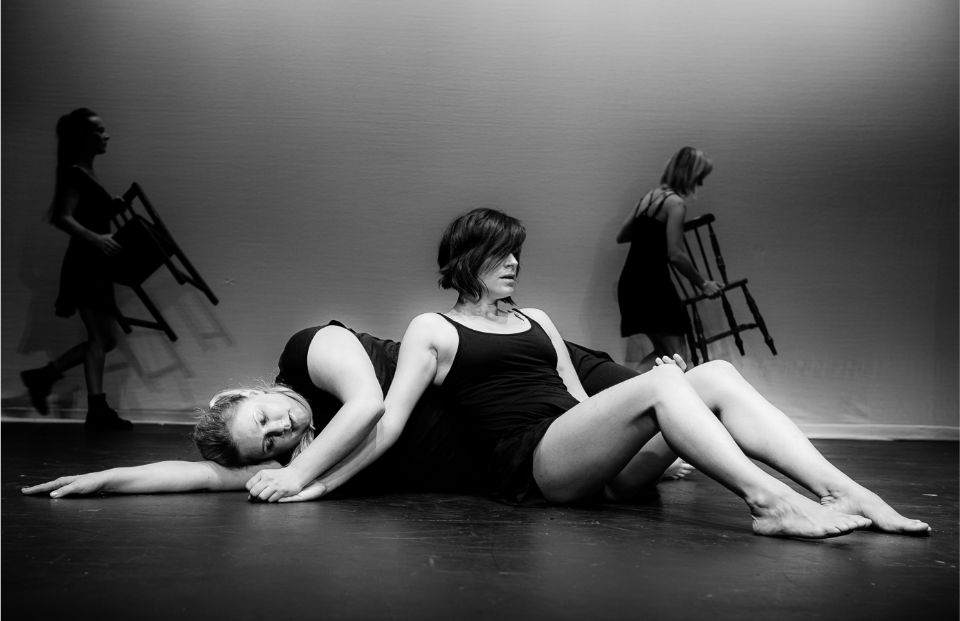
Do you think you can connect people to a rhythm who don't believe they have any?
That's what I hope I can do. I just did my Masters in UL in Dance, focusing on exploring how Ireland affects the creative process of contemporary Irish choreographers. For me, it was really about how culture affects what you want to create or how you create. With that, it's the same as if someone goes to a ballet class once when they're three or four and they're told, ‘You're not doing it right’. They might never dance again because in their head, they have been told they can't dance. Or a comment might be made - 'Oh she can’t dance for anything but look at her go’ - that’ll stick, because it's your body and it's what you were just playing at. You hear a comment like that and it will make you never want to do it again. I'm really interested in looking at different ways of teaching, of ways to get people comfortable moving and once they're comfortable moving their own way, being able to choreograph dances for their movement. I would do that with a lot of the kids and I have one class that's adults with intellectual disabilities. We play games and I watch how they move and see what's comfortable movement for them and create around that. At no point are they going, 'I can't do this’. They're not here for me to push them into the Royal Ballet - they’re going through enough stuff outside of me that if they can hold onto dance and love it and keep it as something for them, that's my goal.
With Ireland in particular, is there a very different attitude to dance in comparison to the States?
I think there's still some stigmas of the body, of comfort with the body, people being comfortable in their own skin when it comes to moving, or actually dancing with somebody and touching. Some people are still questioning if it’s appropriate, or if they’re going to get into trouble, whereas in the States, the girls are in the tiniest shorts and the tiniest little tops - there’s no real worry about that. But I think attitudes are changing here now.
How does living in Galway impact on you from a cultural perspective?
Because it's such a transient city, there's people here from everywhere and a lot of artists. With that, there's a lot of people willing to try different things, that are open to different things. So creating dances with people or working with different artists is very easy because everyone’s looking to create something and that's really inspiring. Like with Off the Beaten Path - a musician and two dancers getting together and saying, ‘Let's just create something here’.
What do you get from that type of collaboration?
You get to create something`and you get to put it out there and once it's out there, it's out there. It is what it is. You get to create and give something. Whatever happens to it after that is to the dust.
What would you like to see happening with dance in Galway?
I'd love to see a dance space here - one space with three or four studios. I think that it could really benefit Galway. You need certain things when you're dancing - you can't dance on cement, it's just making your body fall to pieces, you need heat, little things like that, but things that a lot of the community centres might not have. At the moment, there's one space that was made in Cappagh in Knocknacarra, but now it's only open two days a week. The rest of the week, it just sits there. If we had a dedicated space, we could get more travelling artists to come here and work with the community. Limerick, Cork, Dublin - all of their dance communities have a space, one building, that works for performances and also works for practices and rehearsals and workshops and classes.
What does dance give to Galway on a cultural level?
I think it's extremely important. I think it's still really hidden though and because it's hidden, people stick to their own areas of it. It's developing as a community, but it's not a developed community because people either have to do their classes in bars or in school halls. The Dance Project is really trying to bring that together in the sense that it will support workshops in different varieties of styles. It's tricky, because many of the artists or dancers that are here have to leave Galway because there's nothing here for them. I think a space would help to develop a greater appreciation for dance and help create a bigger audience for dance. But that's a big problem for Ireland as well - there's no conservatoire for Ireland, so anyone that does want to study dance on a higher level has to leave, and then if they come back, will there be support here for them?
Does it frustrate you? The lack of facilities?
It's a double edged sword, because on one hand you have all these amazing festivals on - you’re able to come into a small enough town and buy affordable tickets to some amazing things that come here and in that sense, I feel spoilt with all the art and culture. On the other hand, I think there's a lack of supporting local artists, and I think we probably lose a lot of local artists because there isn't enough support.
- Dorothy Creaven - Previous
- Next - Lillis Ó Laoire